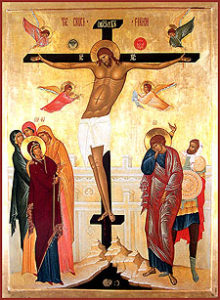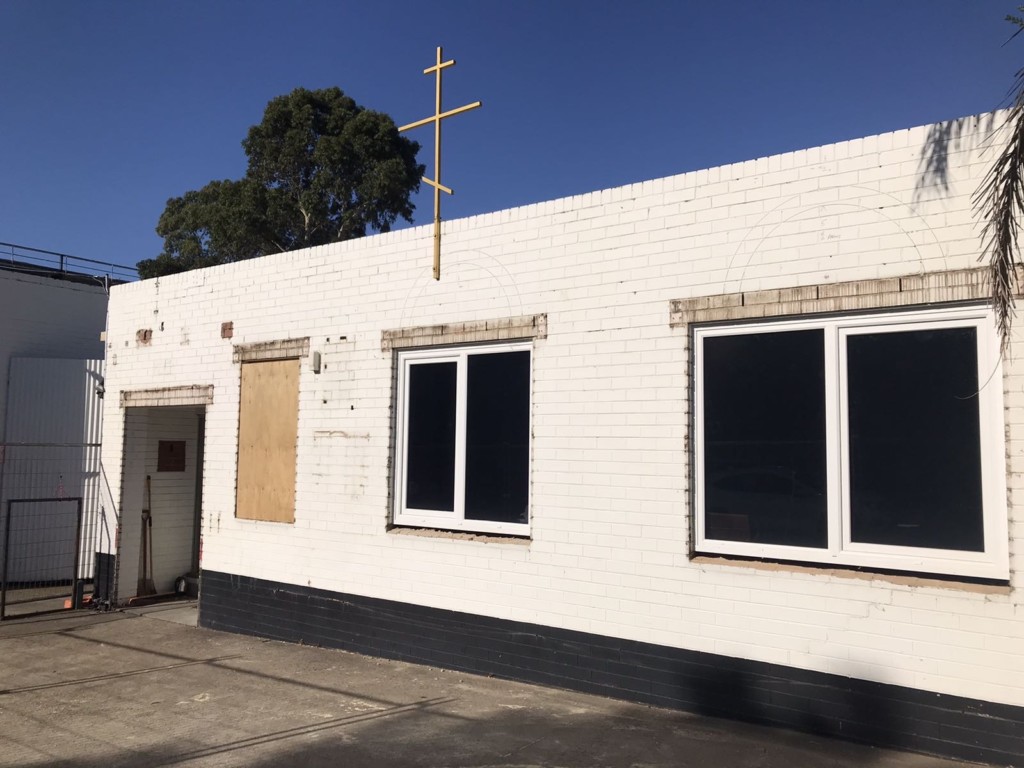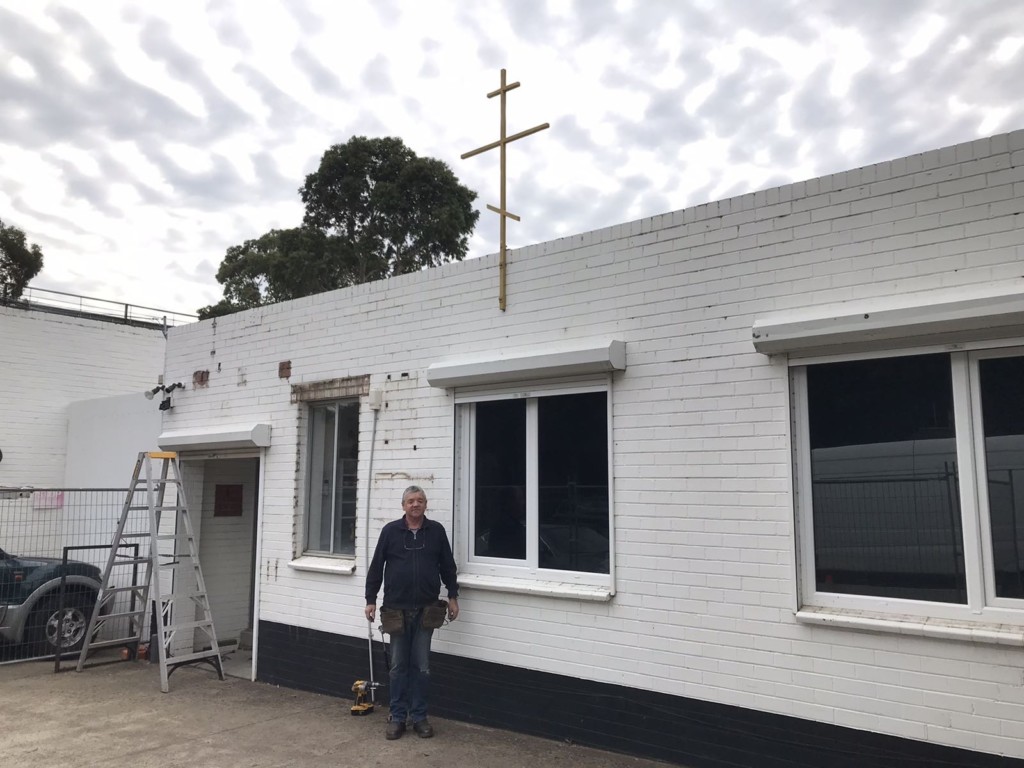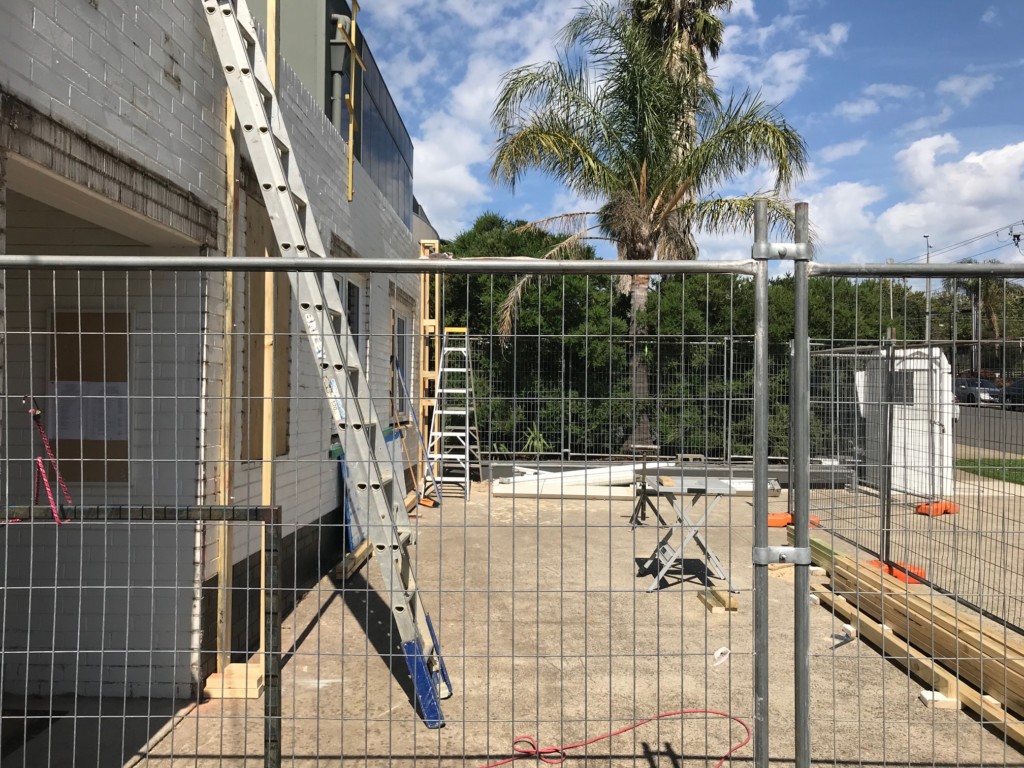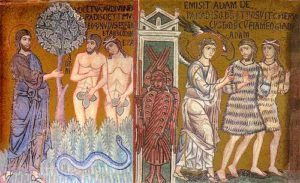The First Sunday of Great Lent: The Sunday of Orthodoxy
24 February/ 8March
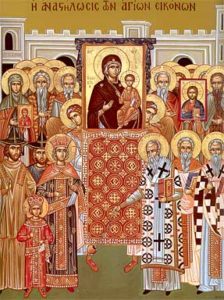
Resurrection Tropar, Tone 5: Let us, the faithful; praise and worship the Word, / Co-eternal with the Father and the Spirit, / born for our salvation from the Virgin; / for He willed to be lifted up on the cross in the flesh, / to endure death, / and to raise the dead / by His glorious Resurrection!
The First Sunday of Great Lent, Troparion, Tone II: We worship Thy immaculate Image, O Good One, and ask forgiveness of our sins, O Christ God; for of Thy own will Thou wast pleased to ascend the Cross in the flesh, to deliver from slavery to the enemy those whom Thou hadst created. Therefore we thankfully cry to Thee: Thou hast filled all things with joy, O our Saviour, by coming to save the world.
THE SUNDAY OF ORTHODOXY
“This is the Apostolic faith, this is the faith of your fathers, this is the Orthodox faith, this is the faith which has consolidated Christendom”(from the “Order of Orthodoxy”)All our feast days are directly connected with sacred events and persons glorified by God. The present feast, however, is of a different nature. This first Sunday in Lent, dear brothers and sisters, the Holy Church has designated for the celebration of the Triumph of Orthodoxy. This feast is unlike most others in the Orthodox Church, for it grew out of the very heart of our Mother Church, out of her long struggle to defend the true faith.
The Triumph of Orthodoxy was instituted by the Holy Church as a sign that the saving dogmas, i.e., the truths of Christ’s teachings, have been received by the Church from the Son of God Himself and His Holy Apostles. Not only have these teachings been preserved unchanged and in all their purity, they have also received the necessary definition and elucidation during the long drawn-out struggle against various heresies and errors.
The last such heresy, whose defeat brought about the definite triumph of Orthodox dogmas, was that of the iconoclastic controversy. The heretics believed it wrong to depict in artistic images the Invisible and Indescribable God. This false interpretation of the veneration of icons led to the expulsion of icons from churches and the destruction of sacred images.
Orthodox defenders of icon veneration have shown from the Holy Scriptures and writings of the Holy Fathers that with the coming of the Lord of Glory in the flesh to the world, the depiction of God and of the history revealing the mystery of our salvation has become not merely possible but essential. The teaching on the veneration of icons and sacred images expresses the dogmatic unity of all Christian dogmatic truths, and has culminated in the present-day celebration of the Triumph of Orthodoxy. Through the decision of the Seven Ecumenical Councils, the Holy Church has enhanced the splendid edifice of Christian dogma, whose firm walls have sheltered the spiritual life of Christians from the winds of heresy.
As understood by the Mother Church herself, the Triumph of Orthodoxy expresses the joyous unity of all Christians in the truths of the holy faith, and the plenitude of communion with Christ through His Church. “Play music and clap your hands,” proclaims the feast-day stikheron, “sing aloud with joy: so wondrous and fearful are Your deeds, O Christ! And who can express, O Savior, Your might, which has united the Church through our harmony of mind and concord?” (Apostikha).
What a profound and clear idea lies at the basis of our feast day! Our harmony of mind and common belief in the truths of faith revealed to us by God have united that which has been put asunder, have healed the terrible affliction of division, and have again made whole the Body of Christ, thus ensuring the triumph of the Universal Church.
How is this holy accord and singleness of mind of Christians manifested? In the very holy of holies of the Christian faith: the firm and unwavering faith and conviction in our Lord Jesus Christ as the True and Perfect God and Perfect Man.
Once again our Holy Church is filling the hearts and minds of her children with an awareness of the triumph of ecumenical faith. Each and every heresy is a denial of either the Divine or the Human nature of the Founder of our faith, the God-Man, Jesus Christ. “True faith,” says St. Athanasius the Great, “consists in believing and confessing that our Lord Jesus Christ, the Son of God, is the God-Man — God, consubstantial and begotten of the Father in pre-eternity, and Man, born of the substance of the Mother within time. Perfect God and Perfect Man…. This is ecumenical faith. Whosoever will not steadfastly nurture the seed of faith cannot be saved” (“An extensive homily on faith”).
Christians, as members of the Church of Christ, must bear witness to the world through their life, deeds and work: “professing salvation by deed, word, and images” (Ikos of the Feast day). Immersing our minds and hearts in the teachings of the Orthodox Church, we must ask ourselves in these days of penance: is our faith firm and well-founded, is our life pleasing to God, and do we have a living communion with the Mother Church through her Sacraments, prayers and teachings?
Thus it is with good reason that the Holy Church in today’s Gospel reading has given us the outline of true Christians in the persons of the Holy Apostles Philip and Nathaniel, in whose thoughts there is no cunning, whose words are straightforward, and whose lives and deeds are pure and holy. From the moment they believed in Christ our Savior, they devoted their entire lives to His service.
Thus we too, brothers and sisters, must profess our Orthodox Faith not by acceptance of Christ’s teachings alone, but also by leading righteous lives before God. Preserve and embody these few truths of faith revealed to us by God, “imprinting them into your memory like a seal. They will serve you as an invincible wall against slanderers, and will provide a fortress for your soul” (St. Basil the Great, “Homily on Faith”). Thus does the Holy Orthodox Church preach to us in the days of Great Lent, in celebrating the Triumph of Orthodoxy. Amen.
The Living Word A.G.B
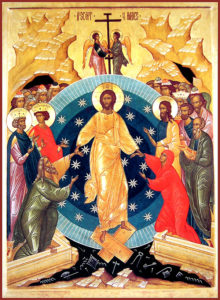 Great and Holy Saturday is the day on which Christ reposed in the tomb. The Church calls this day the Blessed Sabbath.
Great and Holy Saturday is the day on which Christ reposed in the tomb. The Church calls this day the Blessed Sabbath.
